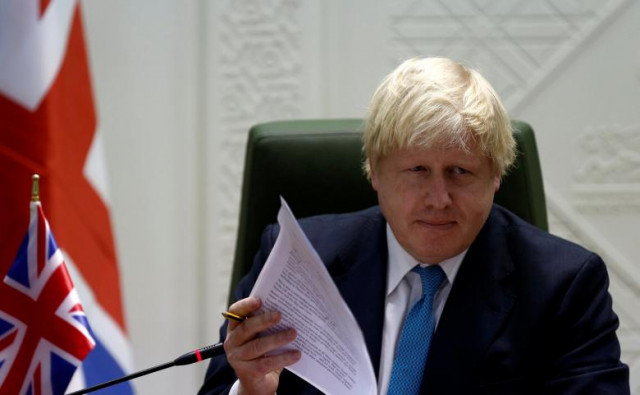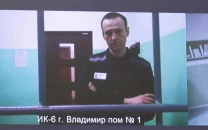Britain's Johnson backs two-state solution on Mideast trip
Israeli settlements, Palestinian violence hindering peace settlement, says UK FM

Boris Johnson. PHOTO: REUTERS
His comments came with US President Donald Trump casting uncertainty over the western countries long efforts to foster a two-state solution.
Trump backed away from the US commitment to a two-state solution when he met Israeli Prime Minister Benjamin Netanyahu at the White House in February, saying he would be open to a single state if it led to peace.
"The policy of our government in the UK is absolutely unchanged," Johnson told reporters in Ramallah after meeting Palestinian Foreign Minister Riyad al Malki.
"We remain committed to a two-state solution, to that vision, for the resolution of this conflict. You know, I really think it is possible," he added.
Britain's Johnson visits Israel, Palestinian territories
However, he said he believed the new administration in Washington represented an ''opportunity.''
"There is a willingness to look at things with fresh eyes, and what it will require is leadership on both sides -- leadership and vision and courage," Johnson said.
Johnson was also to meet both Palestinian President Mahmud Abbas in Ramallah as well as Israeli Prime Minister Benjamin Netanyahu in Jerusalem in his first working visit since taking over as foreign secretary in July.
He met Israeli President Reuven Rivlin, whose role is mainly ceremonial, earlier in the day.
There were also reports in Israeli media that Johnson would be briefed by anti-settlement NGO Peace Now, but there was no official confirmation.
Johnson criticised Israeli settlement building in his comments in Ramallah but also spoke out against Palestinian violence.
"There is, of course, the need for the Israeli people to feel that they can live in security without the fear of terrorism and violence," he said.
"But on the other hand, it's vital to that obstacle such as the accelerating pace of settlement building, the accelerating pace of demolitions, which we also discussed," he said.



















COMMENTS
Comments are moderated and generally will be posted if they are on-topic and not abusive.
For more information, please see our Comments FAQ